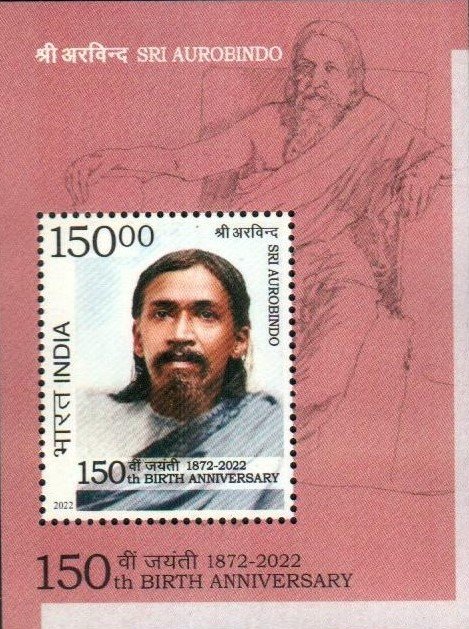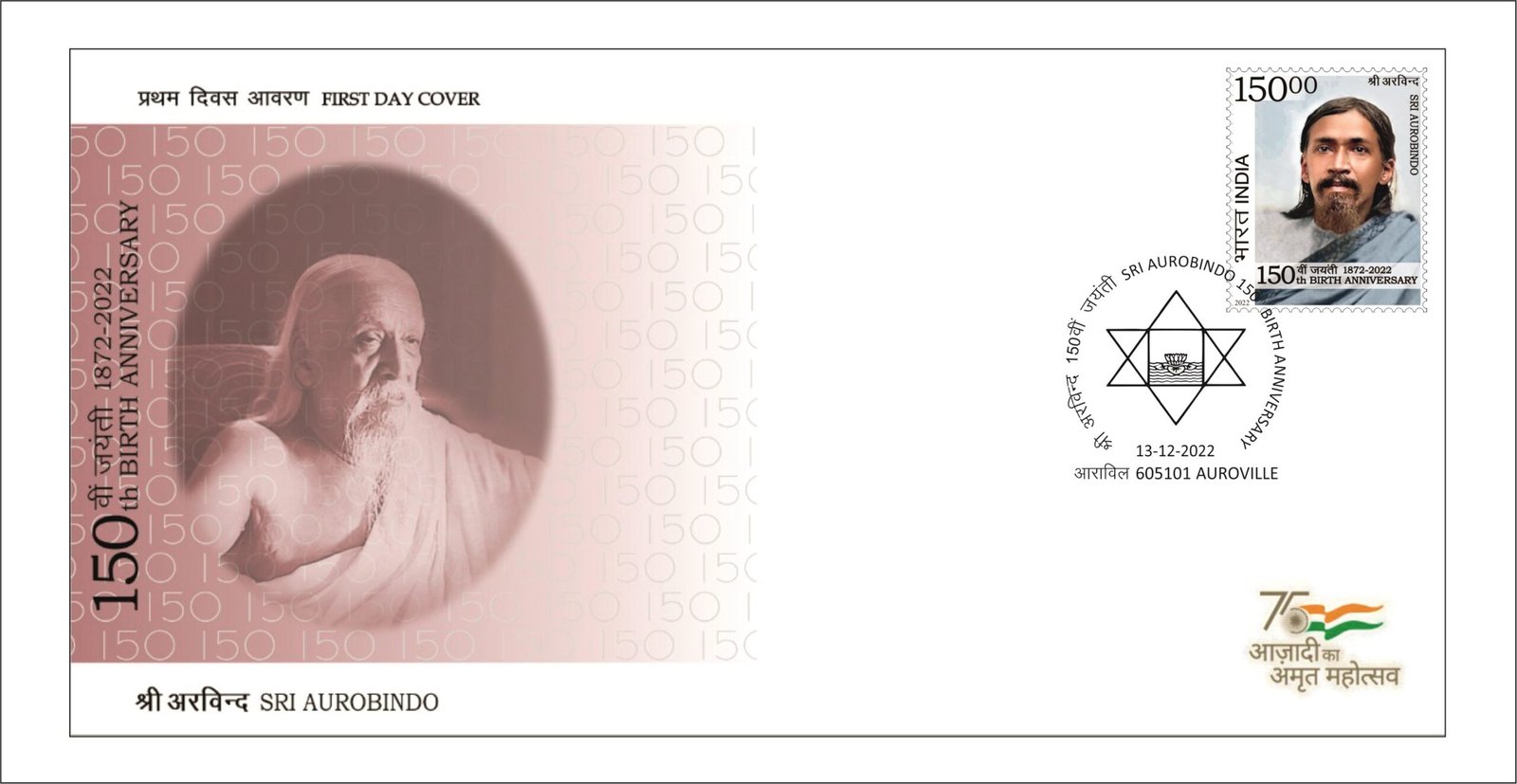150th Birth Anniversary of Sri Aurobindo Bose

Technical Data
| Date of Issue | December 13, 2022 |
|---|---|
| Denomination | 15000p |
| Quantity | 111,000 |
| Perforation | 13½ |
| Printer | Security Printing Press, Hyderabad |
| Printing Process | Wet Offset |
| Watermark | No Watermark |
| Colors | Multicolor |
| Credit (Designed By) | Mr. Suresh Kumar Ms. Nenu Gupta |
| Catalog Codes |
Michel IN BL238 Yvert et Tellier IN BF222 Stanley Gibbons IN MS3832 |
| Themes | Anniversaries and Jubilees | Famous people | Men | Philosophers |
Sri Aurobindo – Philosopher, Revolutionary & Spiritual Master
In India, spirituality has always been an integral part of daily life. Since ancient times, sages and seers have sought spiritual wisdom over material pursuits, guiding humanity towards a higher way of living. Among these visionaries, Sri Aurobindo stands as one of the greatest spiritual leaders, thinkers, and revolutionaries of modern India.
Early Life and Education
Sri Aurobindo was born in Calcutta on 15th August 1872. At the age of seven, he was sent to England for education, where he studied at St. Paul’s School, London, and later at King’s College, Cambridge. On his return to India in 1893, he served in the Princely State of Baroda, working both in the Maharaja’s service and as a professor at Baroda College.
Role in India’s Freedom Struggle
During his years in Baroda, Sri Aurobindo became actively involved in the freedom movement. After the Partition of Bengal in 1906, he moved to Calcutta and soon emerged as a prominent leader of the Nationalist movement. Through his newspaper Bande Mataram, he was the first leader to boldly advocate complete independence from British rule. Despite being prosecuted multiple times for sedition and conspiracy, he was acquitted for lack of evidence.
Journey into Spiritual Life
Sri Aurobindo began the practice of Yoga in 1905. In 1910, he withdrew from politics and settled in Pondicherry, dedicating his life to spiritual exploration. Over the next four decades, he developed a unique path of practice called the Integral Yoga, which sought not only liberation of consciousness but also transformation of human nature.
In 1926, with his spiritual collaborator The Mother, Sri Aurobindo founded the Sri Aurobindo Ashram, which became a center of spiritual learning and progress. Among his monumental works are The Life Divine, The Synthesis of Yoga, and Savitri. He attained Mahasamadhi on 5th December 1950.
Legacy and Influence
Following his passing, the Sri Aurobindo Society was established by The Mother on 19th September 1960, expanding his vision into diverse fields such as integral education, Indian culture, sustainable development, and humanitarian service. Today, the Society has grown into an international organization carrying forward his ideals.
Sri Aurobindo was a scholar, philosopher, poet, yogi, revolutionary, and rishi—a multifaceted personality whose teachings continue to inspire millions worldwide in their quest for inner and outer transformation.
Commemoration
As part of Azadi Ka Amrit Mahotsav, celebrating 75 years of India’s independence, the Government of India commemorated the 150th Birth Anniversary of Sri Aurobindo (15th August 2022 – 15th August 2023) at national and international levels.
First Day Cover


Leave a Comment
You must be logged in to post a comment.